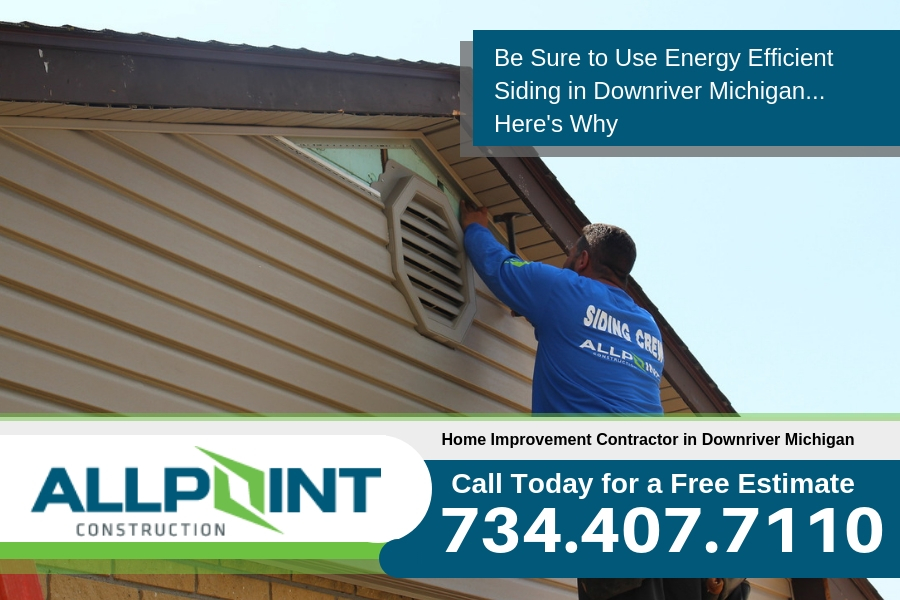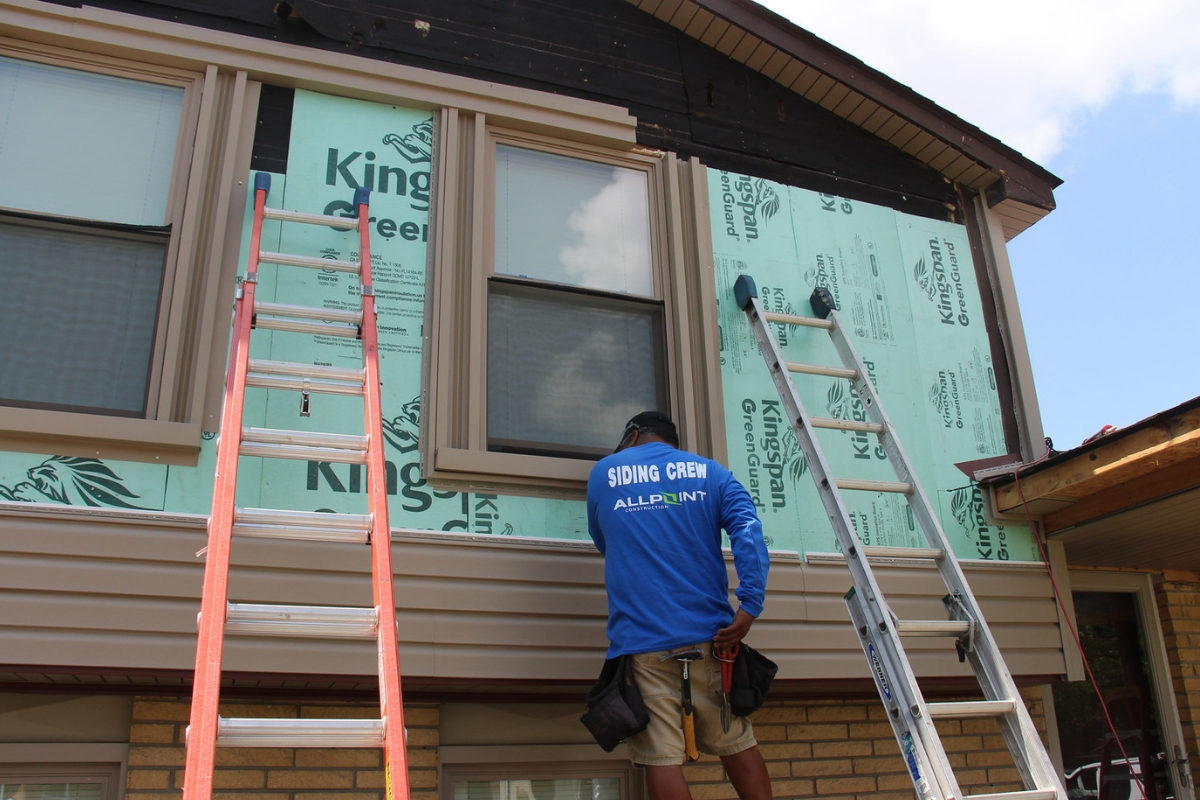The siding in your Downriver Michigan home—it seems like an obvious area to search for energy efficiency updates. Because after all, the siding on your home stands as your initial defense against heat, strong winds, and additional weather conditions which affect your home’s overall energy performance. And for the weather in Downriver Michigan it’s best to get a siding that will last but is also energy efficient.
Be Sure to Use Energy Efficient Siding in Downriver Michigan… Here’s Why
However, unfortunately, the majority of siding does not really provide high efficiency, particularly compared with the protection that is available from additional green materials. The key to reducing heat loss and gain through your property’s outer envelope includes combining more efficient cladding with high-quality housewrap, as well as rigid foam insulation.
Still, some types of siding demonstrate better energy performance than other ones. Plus, buying a higher quality siding will not hurt the overall energy intake of your home—as a matter of fact, it only will decrease the quantity of fuel needed to sustain a comfortable temperature. Below are the greenest choices in the marketplace—and how to utilize them to garner maximum energy savings.

Comparing Numerous Cladding Materials for Energy Efficiency
As it’ll come to keeping the weather out, your siding does not work as hard as the outside wall of your house. The construction business utilizes a professional measurement, well-known as R-value, that rates how well a building material will insulate its interiors. The greater R-value a material has, the better it will be at insulating. Plus, while building codes usually require an R-value of 13 for a property’s walls as a whole, siding alone usually rates under a 1 on this scale. Therefore, it isn’t the most protective part of the exterior of your home.
However, with that said, definite differences exist amongst the numerous kinds of cladding. For example, as a brick veneer only will get you an R-value of about 0.11, vinyl siding usually has a measurement of 0.61. Below we list how the various kinds stack up against each other:
- 1” Brick or Stone Veneer: R-Value 0.11
- Fiber Cement: R-Value 0.37
- 2” Stucco: R-Value 0.40
- Stone or Brick: R-Value 0.44
- Vinyl, Steel, or Non-Insulated Aluminum: R-Value 0.61
- Beveled Wood Siding: R-Value 0.81
- Wood Shingle Siding: R-Value 0.87
Those differences help to explain why stucco is so very popular among houses in the South, in which air circulation counts for much more than insulation. Whereby in the North, wood or vinyl make better choices, as they work harder to protect houses from the elements.
But, remember that a material’s energy performance is not the sole factor to consider while choosing a cladding for your house. For example, while wood might have superior insulation, it also is susceptible to warping, which makes it one of the less durable options.
Benefits of Insulated Siding
Previously, we have mainly focused on standard siding—i.e., the type that does not have insulation. On the other hand, thermal or insulated siding includes a permanent foam backing which works to fill in the gaps between the wall and the siding. That improvement will raise the R-value of your outside cladding. As a matter of fact, especially energy efficient offerings might even obtain ratings as great as R-4.
Even though that figure still comes in below code for walls as a whole, you likely will see substantial improvements in comfort and energy performance. Thermal siding, in particular, assists in insulating around wall studs that comprise about 25% of your property’s walls. Wooden studs may contribute to your property’s heat gain and loss, since they are such poor insulators themselves.
By far, vinyl is the most popular material option for insulated siding. But, you also can buy aluminum, insulated steel, or fiber cement, too. According to some professionals, those products might save you upwards of 20% on your yearly utility bills. Also, foam-backed siding better stands up to impacts from storms, winds, and additional damaging weather events. Plus, it is also rated more highly for noise reduction.
Other Choices to Boost the Efficiency of the Exterior of your Home
Though, high R-value materials, as well as insulated siding will not do you a lot of good if the surface underneath your siding is not well shielded from the weather. Replacing the cladding of your home provides the ideal chance to install a housewrap and a different rigid foam insulation layer against foundation walls.
For a free estimate on siding for your home be sure to call All Point Construction at 734-407-7110. They are a fully licensed and insured home improvement contractor in Downriver Michigan.

Comments are closed.